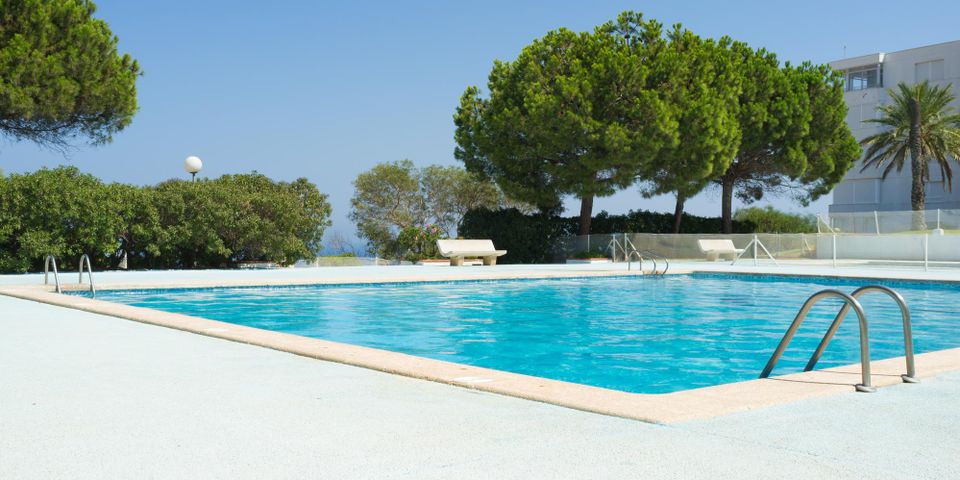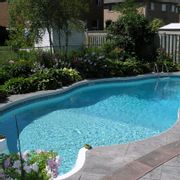
You may have noticed a grayish-white buildup on the sides of your pool, particularly at the waterline. This layer of film is calcium, and taking the right pool maintenance steps will keep your water clean and clear. Here are a few facts to know about handling this mineral.
4 FAQ About Calcium in Swimming Pools
What causes calcium buildup?
An unbalanced pH level is the biggest culprit because the chemical mixture helps keep calcium out of the water. Maintaining your pool’s pH between 7.4 and 7.6 will keep calcium at bay, and your testing kit can help you monitor the level.
Other causes of buildup are evaporation and fluctuating temperatures. If the water evaporates quickly, excess calcium is left behind. The higher the temperature, the more likely calcium will precipitate out since it’ soluble in cold water.
Which type of buildup do I have?
Your pool may have one of two kinds of scaly mineral buildup: calcium carbonate or calcium silicate. Carbonate appears white and flaky and cleans away easily. Silicate appears gray and is tougher to purge. If you aren’t sure what’s sitting on your pool walls, test a sample with muriatic acid—carbonate will foam and silicate won’t.
How do you clean each type?
 Calcium carbonate on plaster or concrete pools can be removed with a pumice stone, but don’t use it on tiles because it’ll damage them. Instead, use a scrub brush and white vinegar or a cleaner designed to address calcium buildup.
Calcium carbonate on plaster or concrete pools can be removed with a pumice stone, but don’t use it on tiles because it’ll damage them. Instead, use a scrub brush and white vinegar or a cleaner designed to address calcium buildup.
If you have a fiberglass pool, add a scaling treatment to the water—this will dissolve the deposits over a few weeks. While pumice stones and a calcium remover can work on silicate, you’ll need more force, which is why calling a pool maintenance company is a safer choice.
Can you prevent calcium?
Calcium will always be present in the water, but you can do a few things to curb an issue. Test your pool regularly, and keep the pH level in the appropriate range. Use a pool cover to stop evaporation, and apply a calcium blocker to tiles and fiberglass so that the mineral doesn’t adhere to the walls. If you see scale accumulating, clean it immediately.
If you want professional help keeping calcium at bay, contact M & M Pool Services in Honolulu, HI. The team offers reliable pool maintenance services year-round, ensuring your water is always clean and ready for use. If your pool accumulates calcium on the walls, they’ll scrub it off and monitor the water’s pH level to make sure the buildup doesn’t return. To get more information about their services, visit the website or call (808) 375-6816.
About the Business
Have a question? Ask the experts!
Send your question

